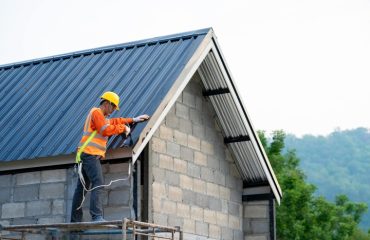
DIY home renovation projects may be very fulfilling and cost-effective, giving you a sense of accomplishment. They do, however, also present a unique set of difficulties. Make sure you carefully consider the benefits and drawbacks before taking on a renovation job yourself. This guide will enable you to decide if DIY home renovations are the correct choice.
Pros of DIY Home Renovation
1. Cost Savings
The possibility of cost savings is one of the most alluring features of DIY home remodeling. Homeowners can stretch their budgets further and devote money to other project components by doing away with labor expenses. A do-it-yourself makeover typically costs $10,000, while hiring a professional costs between $30,000 and $100,000.
2. Flexibility and Control
With DIY projects, you may set your hours and make decisions without seeking advice from others. This adaptability may be especially helpful if you lead a busy life and must schedule the renovation around other obligations.
3. Creative Freedom
Taking up a DIY project allows you to try new things and realize your ideas without constraints. The materials, finishes, and design components that most closely match your preferences can be chosen.
4. Sense of Accomplishment
Finishing a DIY project can bring a special sense of fulfillment and pride. Seeing your vision come to life and knowing that you created it all yourself can be tremendously satisfying.
Cons of DIY Home Renovation
1. Time-Consuming
DIY projects often take longer than anticipated, especially if you are learning new skills as you go. On average, a DIY home renovation could take around 16 hours a week, stretched over 5 or 6 weeks. If you have other commitments, this timeline could be even longer.
2. Limited Skillset
Not all homeowners have the skills required to complete a renovation project to a high standard. Tasks such as electrical work, plumbing, or structural changes demand expertise that not all homeowners possess. Mistakes can lead to costly repairs and potentially dangerous situations.
3. Hidden Costs
While DIY projects can save money upfront, there are often hidden costs associated with them. You may need to purchase tools and equipment that a professional already has. Mistakes or unexpected challenges may necessitate additional purchases and repairs, quickly escalating the overall project cost.
4. Quality and Safety Concerns
Without professional training, there is a significant risk of subpar results that compromise the longevity and functionality of the renovation. Additionally, DIY projects can pose safety risks, such as exposure to hazardous materials or the potential for injury during the renovation process.
Tips for Successful DIY Home Renovation
1. Planning and Budgeting
Thorough planning and realistic budgeting are crucial for a successful DIY renovation. Make sure to account for all potential costs, including tools, materials, and any unexpected expenses that may arise.
2. Learning and Preparation
Take the time to learn the necessary skills and prepare for the project. Utilize resources such as YouTube tutorials, online courses, and DIY guides to build your knowledge and confidence.
3. Knowing When to Hire a Professional
Recognize the limits of your skills and know when it’s best to hire a professional. For complex tasks such as electrical work, plumbing, or structural changes, bringing in an expert is often safer and more cost-effective.
Conclusion: DIY Home Renovation
DIY home can be a terrific way to save money and feel proud. However, they also provide several difficulties, such as the need for competence, time commitment, and possible hidden expenses. You may determine whether DIY home renovation is right for you by carefully considering the pros and cons and making a detailed strategy. If you choose to take on a project, go cautiously and be ready to hire an expert when necessary.
Are you considering a home renovation but need clarification on whether DIY is the right choice? Contact our expert team for professional advice and services to ensure your project’s success!



